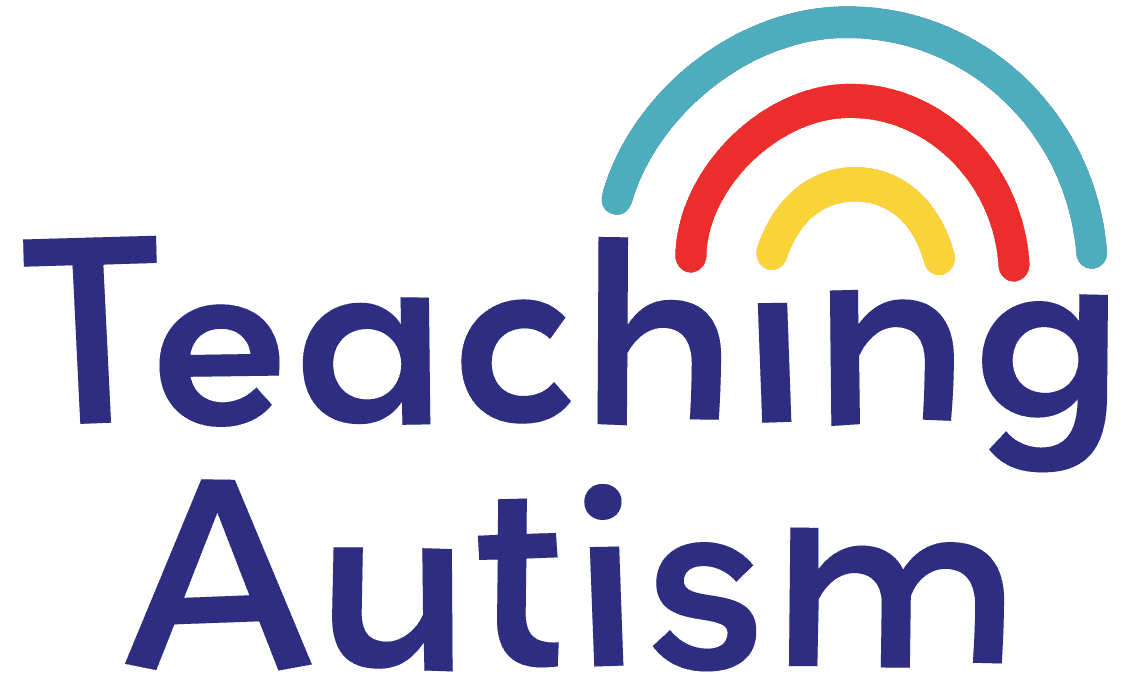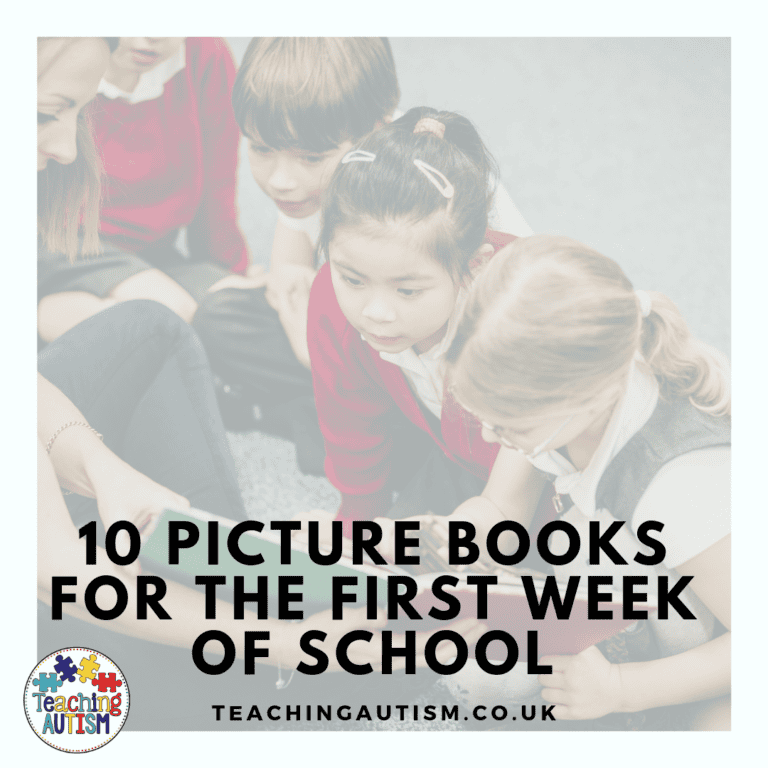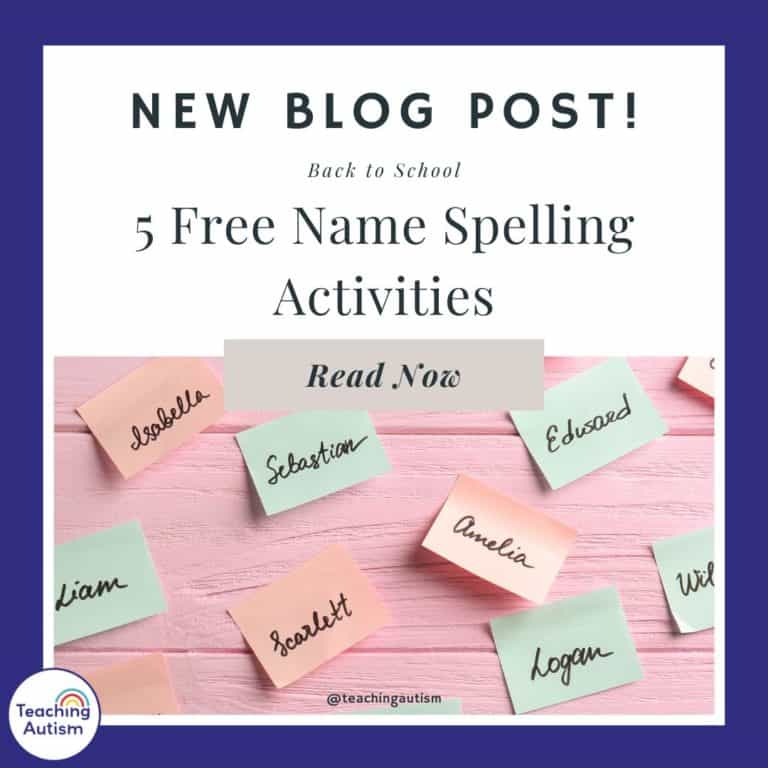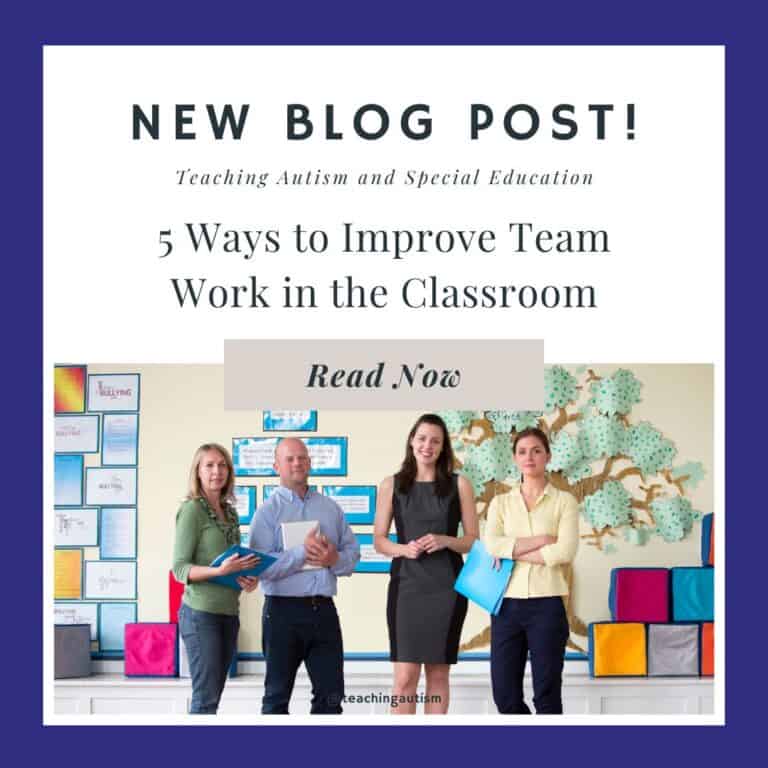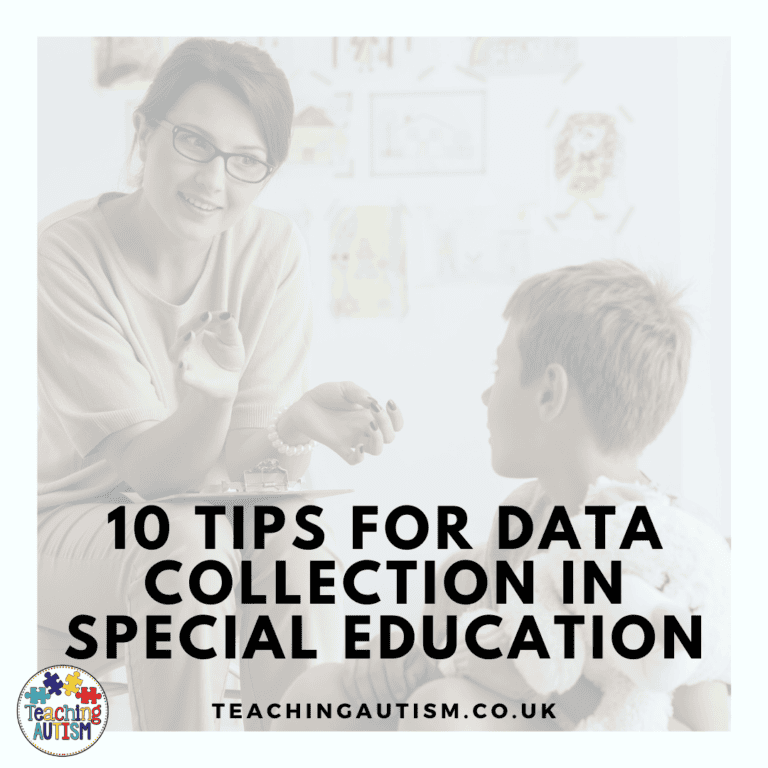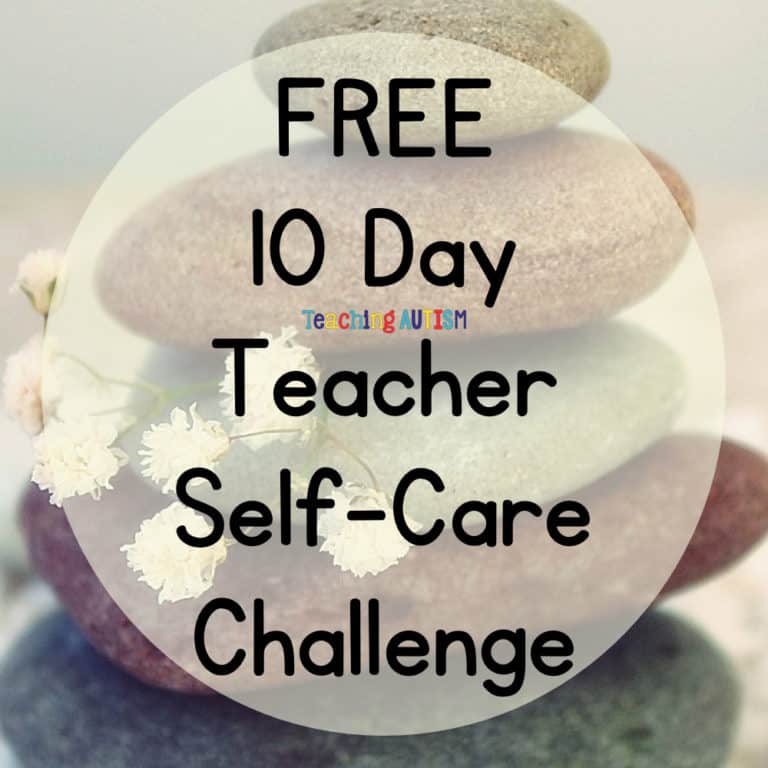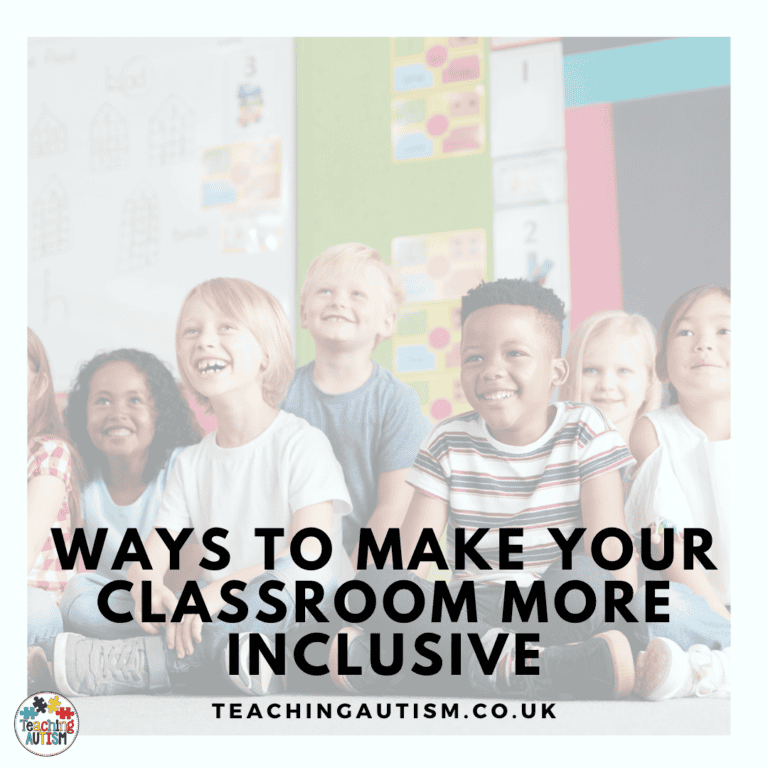Every Student is Different and Individual
This is a blog post that I didn’t ever expect to write. But, I think it’s something that will be really helpful on here. And that is talking about how every student is different.
What Do You Mean?
You may be thinking, well I already know this.. what are you writing a post about it for? But, I want you to really sit back and think about the different things that I’m going to be talking about today.
Originally, I was going to post about how every autistic student is different, but to be honest, I think every single student in the world is different to each other.
People You Know
Think of 5 friends that you have. Are they all the same? Most likely not. They’ll have different restaurants that they prefer to eat at. They dress differently. Maybe they have different styles. Likes and dislikes. Hobbies. Every single person in the world is different, and this is something we need to make sure we’re thinking of with our students.
Differences
What I notice in this world, is that when people hear they are getting an autistic student – or a friend/family member has been diagnosed.. people assume things. And this isn’t through any fault of their own usually. It can be the way that autism is portrayed through the media and what people hear about. Have you ever heard..
- Oh they love routine!
- I bet they eat beige foods, right?
- Are they good with numbers?
- What’s their obsession?
- I bet they struggle with sleeping!
Knowledge Assumptions
The numbers and math one always gets me. Over the years, when we’ve met new people outside of work – or even when I’m in work visiting other establishments – people always say “Oh they are so good at math!” “I bet they’re amazing with numbers, they all are!”
And this used to make me a little mad. I know that it’s not their fault, it’s just what they’ve heard of autism – and that’s what they remember and relate to it. But, that’s not every autistic individual. Sure, some are amazing at math. Just like when you were in school and you probably had a student in your class who was amazing at math.
The same as in your group of friends or family, someone is probably amazing at pop quizzes. Does that mean everyone in your family is amazing at pop quizzes? No, of course it doesn’t.
Our students are amazing. And everyday they blow us away with how much they improve, how hard they work and their wonderful personalities. But don’t assume that every autistic individual is a math genius.
One of the quotes that I love for this is…
“Everyone is a genius. But if you judge a fish by its ability to climb a tree, it will live its whole life believing that it is stupid.”
Which most people say is from Albert Einstein, others disagree. But, it’s still a great quote. It’s like if you judge and treat every single student as a math genius – you’re not giving them the proper tools and support that they need to succeed!
Environments
This one is probably targeted at families of autistic individuals. Have you ever had your child’s teacher say “He ate strawberries today!” And you’re so excited that he’s tried fruit. So you head out, buy strawberries… and nothing. He refuses to eat them. He is not a happy bunny with you.
Or when you find it really difficult to sit down with your child and get them to help you with cookery. They refuse to do it, they don’t want to touch anything. Yet, from school, you see all the photographs of them having so much fun taking part in cookery!
Do not take it personally. Most likely it’s going to be the environment playing a factor. What were they doing before they ate a strawberry? Were they prepared? What was going on around them? Where were they? So many things come into play in our environment. And all of these things can have an effect for our students. So don’t take it personal, it can be the environment that’s making them do things differently.
People
Another myth that I hate is when people assume if you have a non-verbal student, they don’t understand. Or they can’t build a relationship with you. You couldn’t be more wrong, my friend. I have built some wonderful relationships over the years with students – both verbal and non-verbal. It’s all about getting to know the student, and building a relationship that way. We all adapt to different situations and meeting different people. The same as we behave differently with different people too.
For example. Would you behave the same way with your best friend, as you do with your partner? Or your parents? Probably not. We adapted to those we are with in the moment. Our relationships are different. The way we communicate is different. We know who we can be silly with, and have fun. And we know when to be serious and who with.
Relationships Matter
This is so true with our students. They build relationships, and usually specific to that person. I had a student who would sit with me and complete 10 minutes of work. He was fully focused, he would be awesome at all the work I gave him, addition, subtraction, multiplication, building sentences, playing games.
Yet.. one day I was out of the classroom. I came back and another member of staff stated how we need to bring his work down a level as it was too hard. I was baffled – what was he doing? Sequencing. No, I said. He can do that with his eyes closed. Sure enough, I went over, sat with him, pulled out the activity again and he flew through it.
That was nothing against the other member of staff. It’s just who he’s with. He knows I’ve always believed in him, been there as a support and cheered him on. I’d built a great relationship with him. We had fun together but he also knew when it was time to be serious and work. He knew how far he was allowed to go or push. Now, with the other member of staff – he hadn’t really built a relationship with her. So, instead of working, he thought he’d have some fun. And try to push boundaries to see how far he could go.
Again, it was nothing against her. It’s all about building that relationship, knowing your students, and knowing that we all have different relationships. Think to yourself personally again now.
Who would you phone if you wanted a movie night? Or who would you phone if you wanted a glass of wine and some giggles? Who would you phone if you wanted to go shopping? Or who would you phone for interview advice? I’d be surprised if you said the same person for all of those questions.
Interests
Another thing I get a lot are when we share likes/dislikes of our students with others. For example, you may have a student who loves trains. So, you pass this information on to another teacher or therapist who is about to work with them.
When it comes to work time and they pull out those trains – this can be world war 3 all of a sudden! They may get anxious, upset, angry. And they my even try to escape or get rid of the toy.
I promise, it’s not because the teacher has lied to you. And it’s not you.. well, not really anyway. You see, that student may love trains. But they may love to play with trains with certain people only. Like a member of their family – or a staff member they have a good relationship with.
You coming in and pulling out trains could throw them off. What if you don’t play with them right? Who are you? Why are you playing with my trains? Why are the trains HERE and not at home? Or back in school? All of these things can affect that student and they may not want you to be involved in that interest. That’s ok. Just find another interest!
Support Systems
Another issue is support systems. You may have 10 students in your classroom. 9 may respond really well to having a visual schedule – but 1 may not. They may prefer to have a written list with them. Or have objects to link with what’s coming next.
You’ll have students who communicate in different ways. Like you may have 2 students who will talk with you to communicate. Then, 2 other students may use sign language. The rest of your students may use a picture exchange system.
Why am I saying these things? Well.. just as a reminder to not blanket resource your students. What do I mean by that? Well, just keep in mind each of your individual students. You may need to provide different types of communication and support systems for your students. We have always have individual work stations for this reason, so that everyone is having the best possible support and chances as possible.
You may have students who LOVE their visual schedule in school… but then when you try and introduce it at home – they’re not happy. They don’t want it at home. It’s a school thing.
Finding the One Thing
Finding the one thing is going to sound overwhelming, but it’s a good thought. You see, by spending time getting to know each of your students, you’ll learn more about them and find out their individual preferences and needs.
What do I mean by this? Well.. you just need to find that one thing that works for their student in that environment. So, in the classroom you may find that Student A responds well to having a mini visual schedule at their independent work station. But at home, they respond better to just being told what’s happening this evening.
Everyone has unique needs and preferences. It’s that age old sentence, that I do secretly love… “When you’ve met 1 person with autism, you’ve met 1 person with autism.”
This is so true and I can not tell you how important it is to keep this in mind. You may have 30 years of experience teaching autistic students. But you can’t just walk into a new classroom tomorrow, and get all the students working and implementing strategies.
Sure, you’ve had a huge amount of experience. And with that, probably training and knowledge as well. But, you haven’t met these students before. You don’t know their individual needs and preferences.
You’ve Got This!
But, don’t worry. This may sound like I’m telling you that you’ll be starting over each year with new students – but you won’t be. You see, the experience and resources that you build each year, can still transfer and be used. You’re never wasting your time making a resource for one student.
You see, although every student is different. Sometimes, a student can give you an idea that may work for another student. And this is when it’s important to remember that we can learn from our students.
Today’s Takeaway
I’m aware that today’s blog post was a little longer and maybe I waffled at times. But, it’s a topic that I really wanted to talk about. I was going to go live on Instagram and discuss it- but I felt like having it here, in writing, made it that little bit easier for everyone to access and refer back to.
My biggest takeaway from this blog post for you all today is to just spend time getting to know your students. I know we all have an endless list of things to do. But the one thing that you absolutely will not ever regret doing, is spending time building relationships with your students. This is one of the most valuable things you’ll do with your students. And it will make things run a lot smoother for you.
I hope you found this blog post helpful. If you did, please consider sharing it with your friends and colleagues on social media. Be sure to leave a comment down below too of your thoughts on this topic. Or, do you have any tips for building relationships with students? Let us know down below.
Don’t forget to tune in to our podcast for more great information and tips that I’m sharing.

